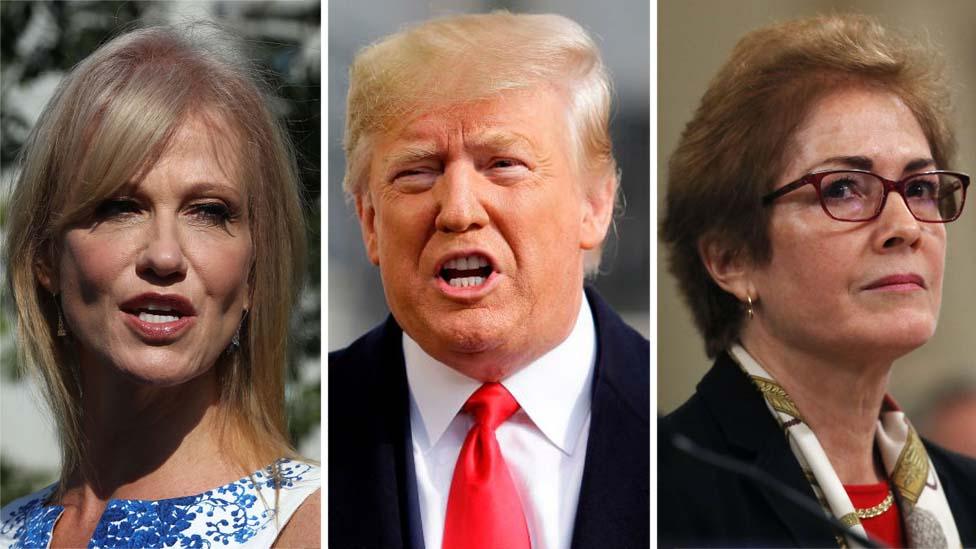Kamala Harris: What her experience tells us about US politics
- Published
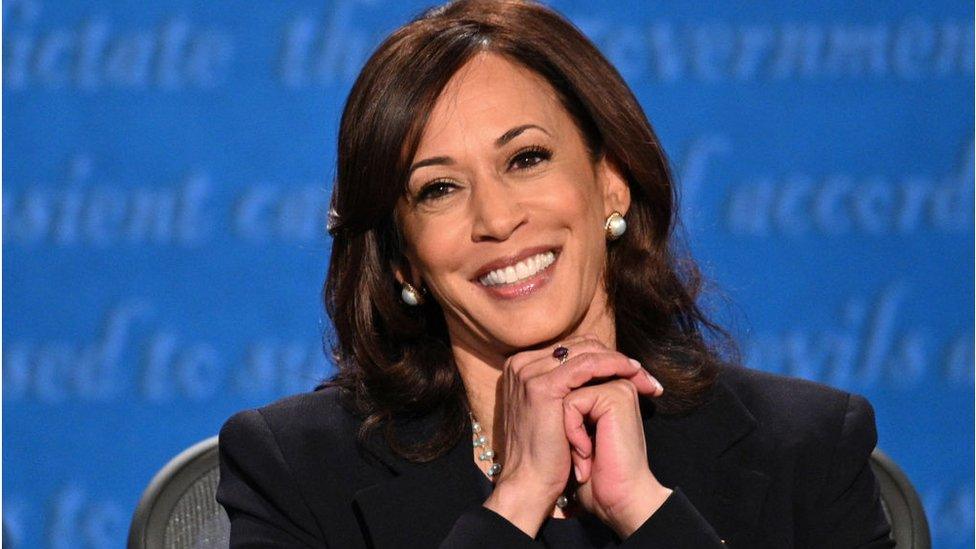
With Senator Kamala Harris as a historic vice-presidential running mate, it's impossible to avoid the topic of gender this election cycle - but are the rules of the race really different for women?
Here's how her nomination highlights the issues women in politics have faced for decades - and how things are changing - with analysis from Debbie Walsh, director of the Center for American Women and Politics at Rutgers University.
The art of not being angry
Women in politics must walk a fine line between assertive and aggressive. Research shows that existing, unconscious gender biases can make women come across as condescending where their male counterparts might be lauded as confident.
For minority women, these gender biases are compounded by racial ones too. And in the US, the trope of the "angry black woman" is an old, insidious stereotype. The trope, which emerged in the 19th Century, characterised black women as unfeminine, irrational and sassy.
As Ms Walsh explains: "Women are accused of not being strong enough and tough enough to be president or vice-president, but at the same time, how do you portray strength without it being seen as anger?"
She feels Ms Harris did a good job toeing the line during the VP debate, but adds that there were some instances were she seemed to hold herself back - although her polite response to the interruptions was "brilliant" and relatable to any woman who has experienced being talked over.
Is she fit to lead?
Some analysts argue that women have to prove themselves on the campaign trail in ways men do not, even if gender isn't a primary concern for voters. Where people assume competency for men, women must demonstrate it.
The BBC spoke to Nevada's assembly floor leader in 2019
Economist/YouGov, external polls in August showed that the sitting vice-president held a narrow lead in favourability compared to Ms Harris. A quarter of Americans polled said they were uncertain how they felt about Ms Harris, and 14% said the same of Mr Pence.
After the debate, most voters felt Harris won. But when asked who might be better to take over as president, some polls looked a bit different.
YouGov polls, external found most Americans - 56% - felt Mr Pence was best placed to take on the presidency if Mr Trump cannot serve, while 50% felt the same way about Ms Harris. Among the key independent voter bloc, 53% reported having faith in Mr Pence's abilities, compared to 44% saying the same for Ms Harris.
While some survey respondents may simply feel a sitting vice-president is more qualified for the top job than a first-term senator, advocates for women in politics have long argued they have to prove their prowess more than their male counterparts.
Being 'Momala'
When she accepted her position as Democratic running mate, Ms Harris said the title of vice-president would be great, "but 'momala' means the most".
As she's introduced herself to America, Ms Harris has often highlighted her family life (she's mother to two step-children) and values. The way she was raised by a single-mother coupled with her blended family have been key points in the way Ms Harris presents herself as a candidate.
For men in politics, Ms Walsh explains, showing off their families has "always been a value add". But it's only more recently that women in politics have also begun to use their experiences as qualifications.
It's a "conundrum for women", she says, because if they do not have children or do not talk about them it can raise questions of "why not?" "And then if you do talk about them and if they're young, then there's the question of who's going to take care of your children?"
On the flip side, when a man discusses his family, it helps paint the picture of him as a "family man", but "no-one is questioning [his] choices and priorities", or wondering who is taking care of the children.
One only has to look back to Sarah Palin's 2008 vice-presidential run to see the family debate play out. The then-Alaska governor saw her parenting choices scrutinised by the media and some Democrats. At the time, Mrs Palin had five children, including a baby with Down syndrome. Critics wondered if she was neglecting her family to run for office.
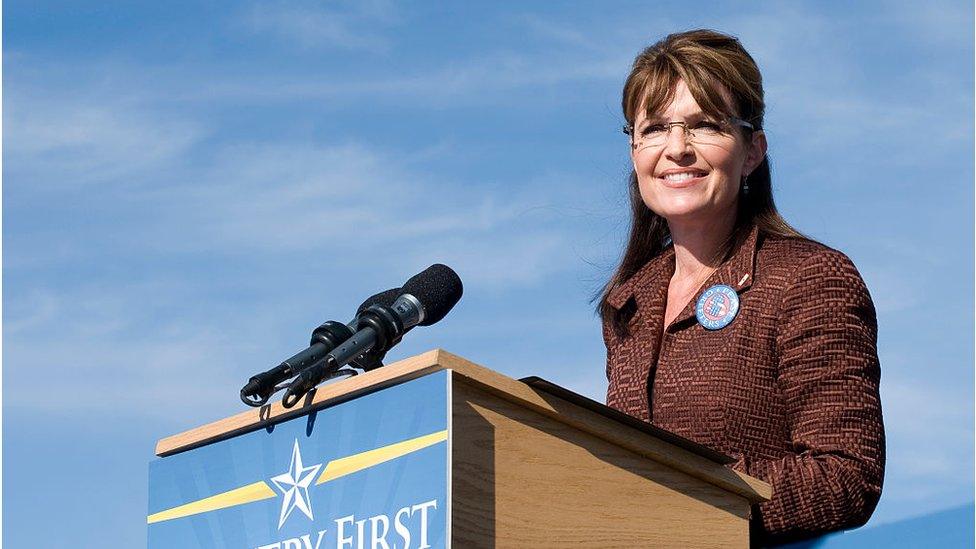
Then-Republican vice-presidential candidate Sarah Palin in 2008
It's a stereotype that's been changing, to be sure - even if women in politics can't quite escape links to motherhood.
More recently at her Supreme Court nomination hearing, Amy Coney Barrett's status as a mother to seven has been touted by Republicans as experience that will make her a better justice.
Ms Walsh also notes that Ms Harris is in a unique position as the mother to grown-up stepchildren. And of course, voters want to see their candidates as human beings with lives of their own.
"So I think she is following what's actually normal."
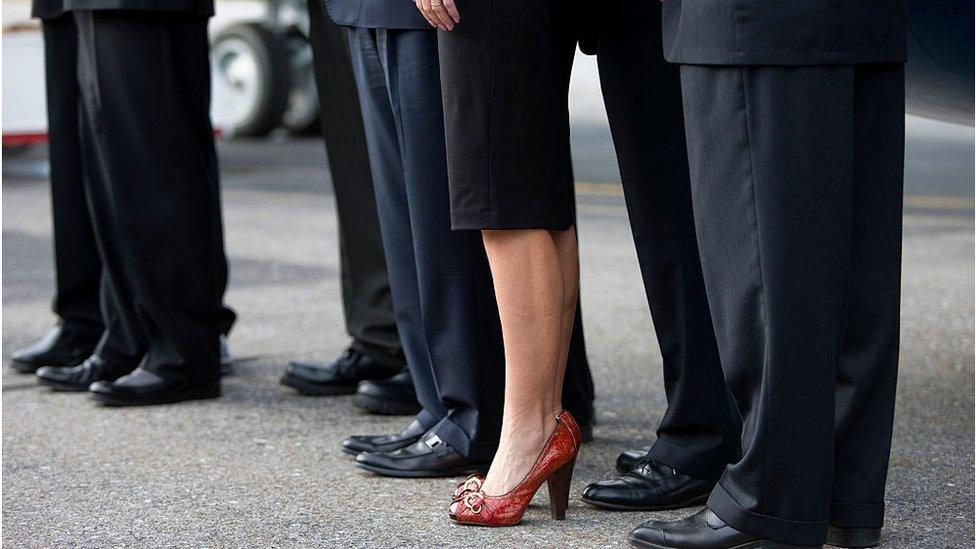
How have the men talked about (and to) her?
Nasty, radical, disrespectful, a monster: this is how Mr Trump has described Ms Harris since she became Mr Biden's right hand.
Her rival Mr Pence has not levied insults, but we did learn a bit from his debate performance.
When it comes to the interruptions, certainly some of it is just part of debating. But for Ms Walsh, it's the fact that Mr Pence could use such a technique that highlights the differences.
"He does it in this way that he's politely ignoring you," she says. "If a woman were to do that, sort of just keep talking, there would be a whole line of discussion about she just couldn't shut up."
How are things changing?
Ms Walsh says that since 2018, when there was a surge in the number of women running for office, women candidates have become more comfortable with authenticity.
"Not overthinking too much about 'how am I supposed to perform' but trying to be more who they really are," she says. "We saw it in 2018 with a lot of candidates talking about issues that most women would have been told to stay away from."
Those include mentioning young children, to experiencing homelessness or talking about their own financial problems.
Back in 2017, external, former US Secretary of State Condoleezza Rice also called for women to not let "somebody else's racism or sexism be your problem".
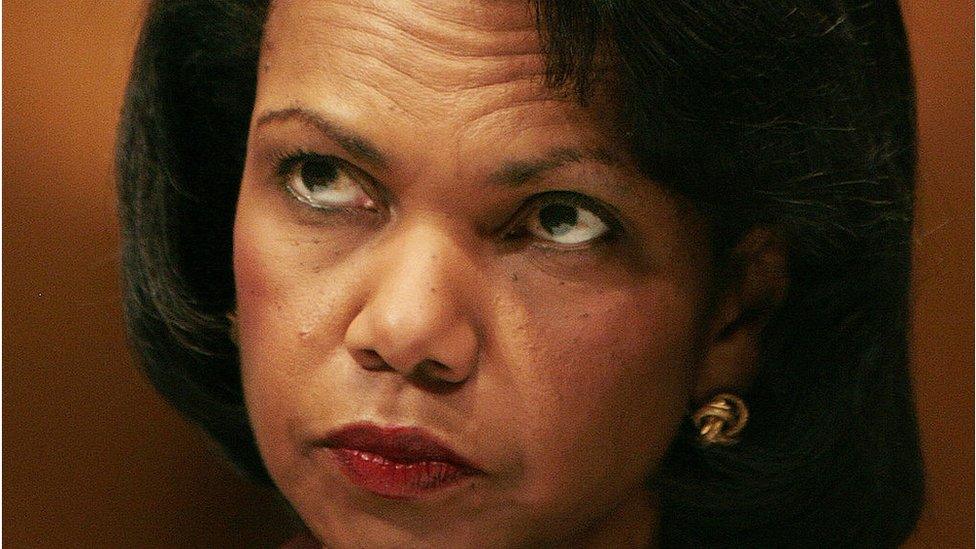
"That's what we have to say to women: When you walk into a room, if somebody tries to put you down, don't take that on. Simply speak up for yourself," she said at a KPMG leadership summit. "If you're really denied something that you think you should have gotten, there are all kinds of means of recourse for that - and you ought to take them."
Ms Walsh says from Geraldine Ferraro to Sarah Palin and Hillary Clinton, each candidacy has built upon the past. And now, with the culmination of having a black, Indian woman as a vice-presidential nominee, "it's an enormous shift in the world", she says.
"When women see someone like Kamala Harris as the vice-president pick and possibly as the vice president, it just changes the calculus of what they could be in life."

Get in touch
Women's rights issues are a big part of every election. We want to know - what are your questions and concerns that our journalists can look into? And what questions do you have for US voters? We'll put those to our voter panel.
Tell us below.
In some cases, your question will be published, displaying your name, age and location as you provide it, unless you state otherwise. Your contact details will never be published. Please ensure you have read our terms & conditions and privacy policy.
- Published11 September 2018
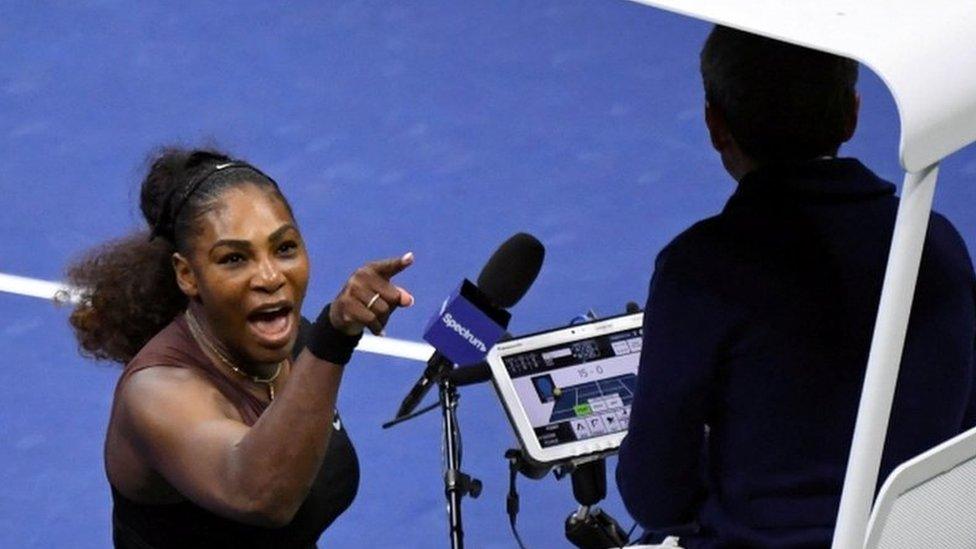
- Published11 September 2019
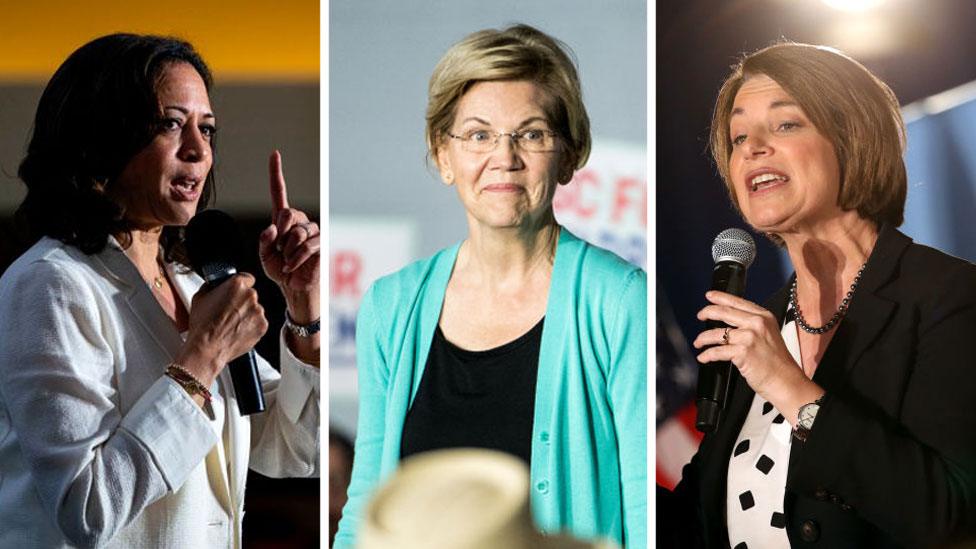
- Published8 October 2020
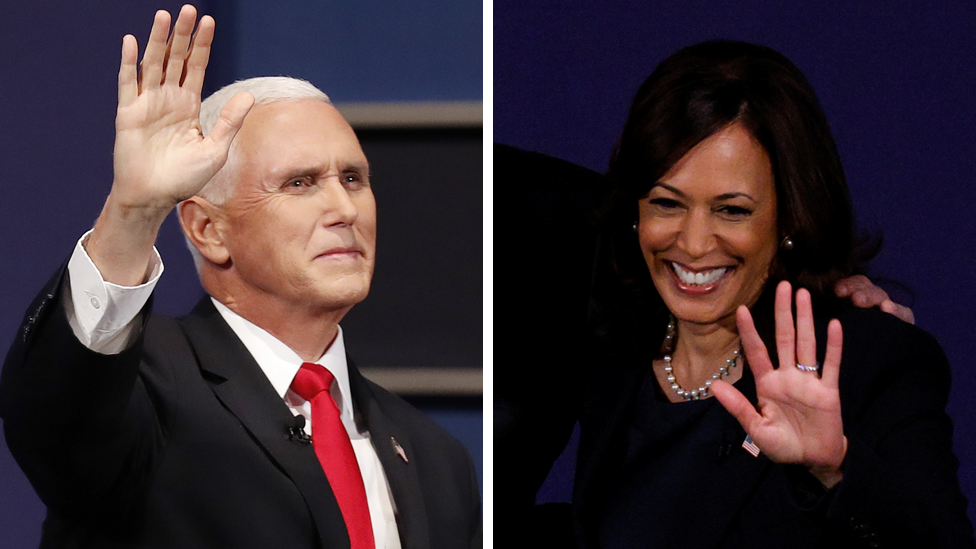
- Published29 November 2019
